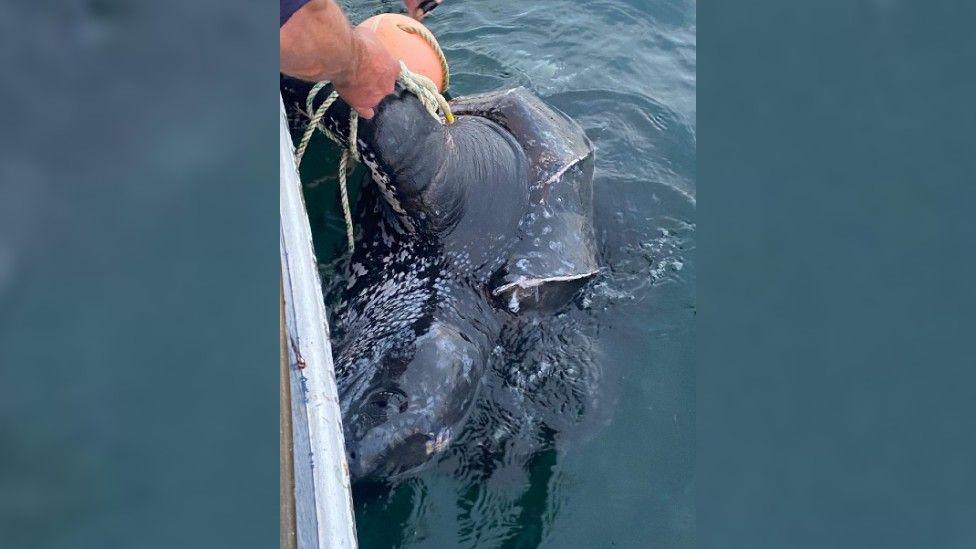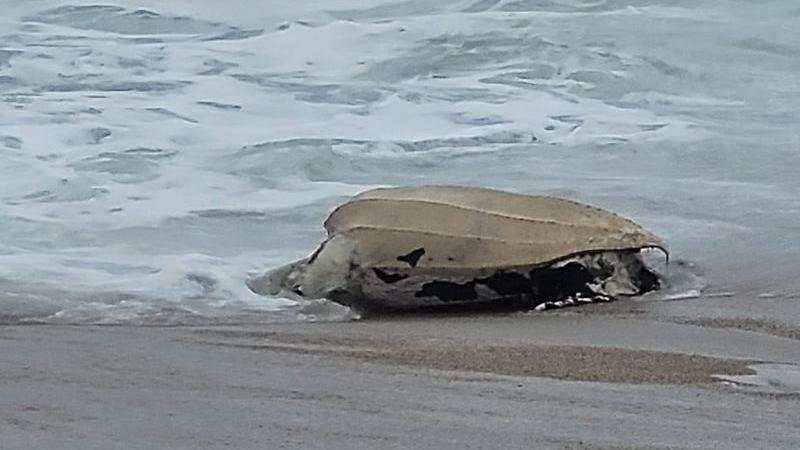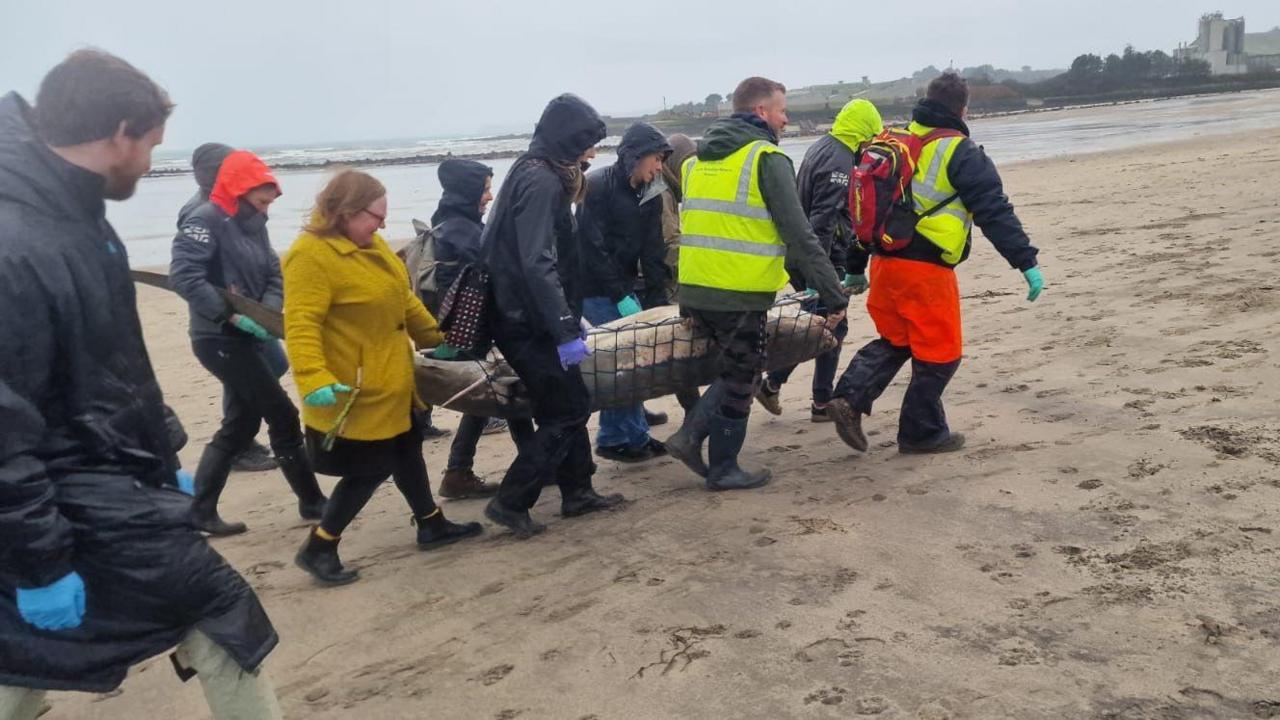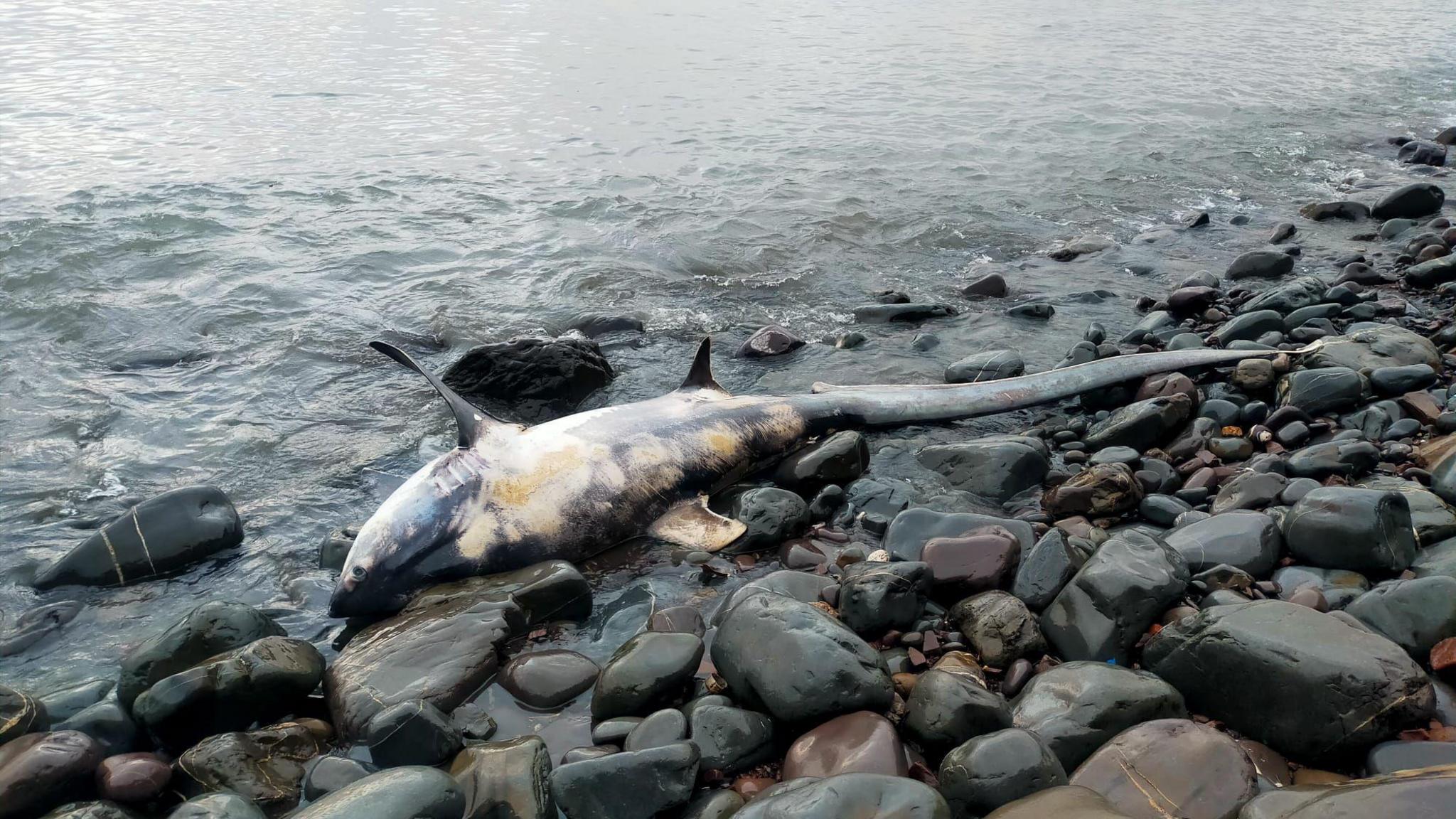Leatherback turtle caught in fishing pot dies

Cornwall Wildlife Trust said they received reports of a stranded leatherback turtle at a beach
- Published
A leatherback turtle died after getting caught up in a fishing pot line, a wildlife trust has said.
The stranded turtle at Porthleven Beach was reported to Cornwall Wildlife Trust on Wednesday, but it was "too decomposed" for a full post-mortem examination.
However, a volunteer from the trust's marine strandings network was able to take some samples for analysis by the Cornwall Marine Pathology team.
A fisherman reported the turtle had become entangled in his pot lines about a week ago and was unable to bring it ashore due to it being "such a large animal", the trust said.

Cornwall Wildlife Trust said it believed it was the same turtle which had been caught in the fisherman's pot lines
Cornwall Wildlife Trust said leatherback turtles were the only species of sea turtle to make regular visits to the UK.
It said leatherbacks were different from other sea turtles because they are warm-blooded - meaning they were able to visit cold UK waters.
The trust said it had seen an increase in live turtle sightings this year, which it said coincided with the increased number of jellyfish, their food source.
A spokesperson for the trust said: "We have been waiting for it to strand. We believe that this is probably that turtle.
"We appreciated the report from this fisherman.
"It is only by working with the fishing industry in this way that we can learn more to understand bycatch and ways to avoid it."
'Do not touch'
The trust said leatherbacks were vulnerable, with many populations critically endangered and at risk of extinction.
It added in the UK, they were a priority species under the UK Post-2010 Biodiversity Framework.
People are advised not to touch the turtle as it may carry disease and bacteria.
The trust said leatherback turtles do regularly visit the south west coasts during the summer months.
"Sadly, occasionally, they do also get entangled. Like humpback whales, their long pectoral flippers make them prone to becoming entangled in rope attached to static gear," the trust said.
Follow BBC Cornwall on X, external, Facebook, external and Instagram, external. Send your story ideas to spotlight@bbc.co.uk, external.
Related topics
- Published3 January

- Published3 December 2024
